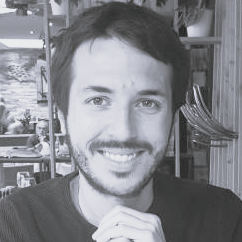
INTERVIEW - AXELLE MAZERY, CHIEF BRAND & COMMUNICATION OFFICER AND SUSTAINABILITY LEADER, ROGERS HOSPITALITY: "CUSTOMERS EXPECT SUSTAINABILITY TO BE AN INTEGRAL PART OF THE HOTEL OFFER". (Mauritius)
In the 74 years of its existence, Rogers Hospitality has forged a unique bond with Mauritius, championing luxury hotels and hotels de charme in harmony with nature and its vibrant communities, through ambitious inclusive, preservation and regeneration projects
|
 |
INTERVIEW - AXELLE MAZERY, CHIEF BRAND & COMMUNICATION OFFICER AND SUSTAINABILITY LEADER, ROGERS HOSPITALITY: "CUSTOMERS EXPECT SUSTAINABILITY TO BE AN INTEGRAL PART OF THE HOTEL OFFER". (Mauritius)
In the 74 years of its existence, Rogers Hospitality has forged a unique bond with Mauritius, championing luxury hotels and hotels de charme in harmony with nature and its vibrant communities, through ambitious inclusive, preservation and regeneration projects
|
Category: Africa Indian Ocean - Mauritius - Industry economy -
Sustainability - Interviews
Interview made by Christopher Buet on 2024-01-05
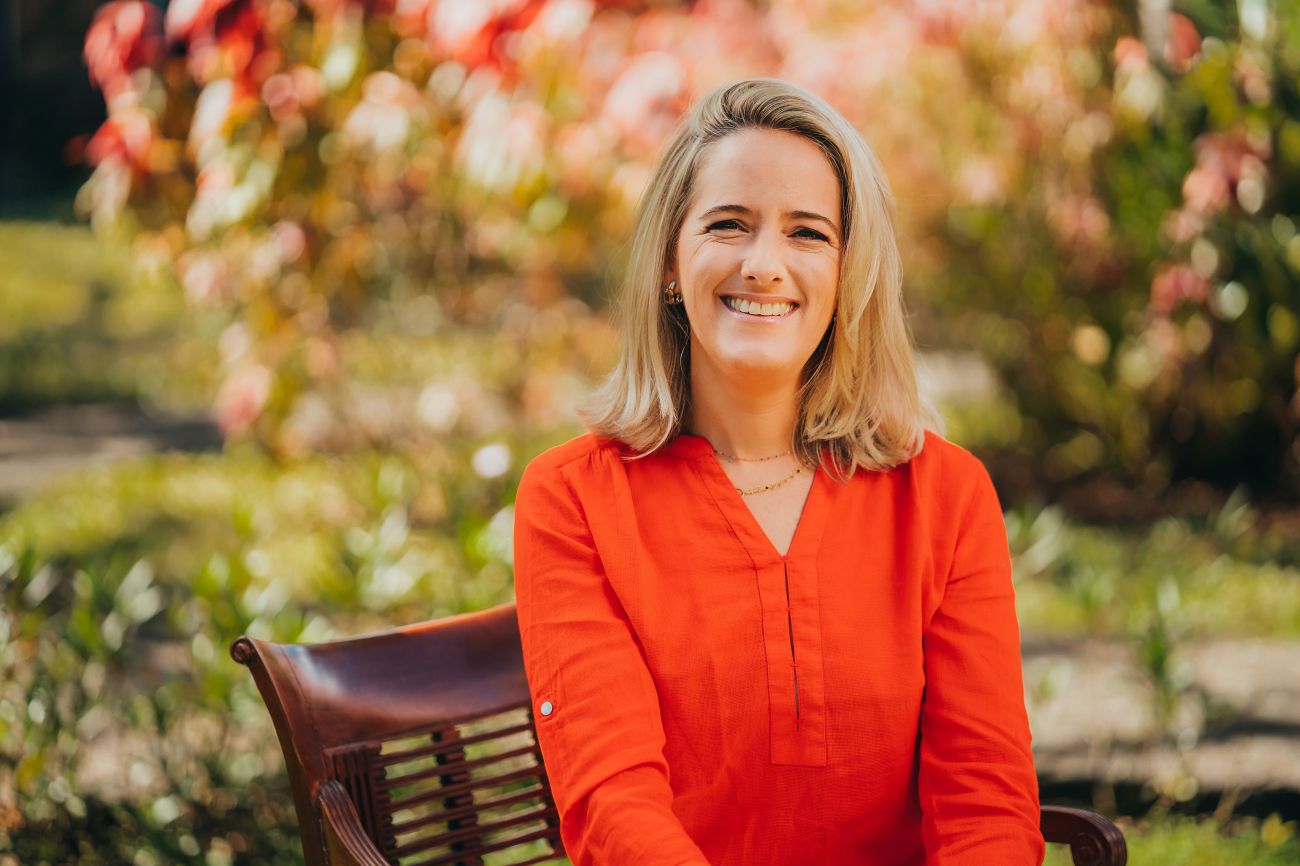 Axelle Mazery, Chief Brand & Communication Officer and Sustainability Leader, Rogers Hospitality
Photo credit © Rogers Hospitality
All of which convinced Rogers Hospitality to make its home here. That was 74 years ago. Since then, the company has become so firmly rooted in the Mauritian hotel scene that it has become one of its ambassadors, with a very personal approach. While its luxury hotels and boutique hotel de charme resorts operations, notably the two Heritage Resorts & Golf in the south-west of the island and its six Veranda Resorts hidden around the island’s quaint coastal villages, sacrifice nothing to offer distinctly unique experiences. Whether within the luxury resorts, championship golf course, boutique hotels de charme, restaurants, geopark and land adventures that they operate, they embody the authenticity of Mauritius, and always endeavour to translate it into an active eco-responsible approach.
All of their brands have been carefully selected for their distinctly unique offerings. Whether they are hotels and resorts, restaurants, land adventures or breathtaking destinations, they embody the authenticity of Mauritius and offer memories that will last a lifetime.
Aware before the issue become unavoidable, Rogers Hospitality has committed itself to sustainability and is fully invested in the preservation of its island's flora, fauna and cultural heritage. Even more than preservation, it advocates the regeneration of habitats through ambitious, virtuous and local projects. It's a way of showcasing what the region has to offer and imagining a welcoming, upscale future for it.
While in Paris, Axelle Mazery spent an hour with Le Journal des Palaces to explain Rogers Hospitality's philosophy and present the many actions taken to achieve its goal of carbon balance within its luxury resorts, in terms of impact on nature. A slow and complex process, but one that is also stimulating and enriching.Journal des Palaces: Can you tell us a little about Rogers Hospitality?Axelle Mazery: Rogers Hospitality is a management company, encompassing 14 hospitality brands including Luxury Resorts (Heritage Resorts & Golf), Championship Golf Courses, Hotels de Charme collection (Veranda Resorts & Kaz’alala), mid-scale business hotels (Voila Hotel), destination-experience restaurants (Le Chateau de Bel Ombre, C-Beach Club & Le Chamarel Restaurant), leisure activities (Bel Ombre Nature Reserve), a unique Chamarel 7 Coloured Earth Geopark, Historical Patrimoine Le Chateau de Bel Ombre and the World of Seashells museum etc. in Mauritius.
As far as beach hotels and resorts are concerned, we manage a high-end product with Heritage Resorts & Golf and its two hotels (Heritage Awali and Heritage Le Telfair) and two Championship Golf Courses (La Reserve Golf Links and Le Golf du Chateau) in the south-west of the island, nestled within our 2,500 hectares playground of the territory of Bel Ombre recently recognized among the 100 most sustainable tourism destinations at the Green Destination Summit 2023, as well as the Veranda Resorts brand, comprising six creole-chic boutique hotels.
Each property has between 80 and 120 rooms and features very Mauritian architecture. Veranda Resorts is the art of Mauritian culture, the pleasure of giving hosting and hospitality, capturing the soul of Mauritius. With this in mind, in early 2023 we reworked the positioning and brand promise of the Veranda Resorts brand. We say “Feel Mauritius, feel Mauritian” because the island is discovered through its iconic places to visit, its culture, but also through our Mauritian team members within our hotels sharing their culture, friendship, recommendations, experiences, stories, kindness, genuiness, culture so that our guests also start feeling Mauritian as well.
For the other part of our operations, since we are very much centered on experiences, transformational holidays, as well as sustainability and protection of our cultural heritage, it became obvious that experiences and products linked to cultural protection, nature, history became part of our collection.You've repositioned your luxury brand, Heritage Resorts & Golf. Why have you done this?It's a young brand constantly evolving, with a lot to offer. Until now, it was marketed in a traditional way focusing on its beautiful assets: the sea, the beach, golf... We believe that the brand has now reached a new evolutive level where, through its tangible assets but also its intangible assets being its human capital, world-class service and savoir-faire, we were now ready to position ourselves leaning on our strong brand pillars being Golf, Culinary, Spa & Wellness, Nature, Service. In parallel, through our online concierge services, we unveiled a new series of transformational experiences, inviting its guests to indulge their longed-for moments, while reconnecting with loved ones in the most breathtaking settings.
Our new Heritage Resorts & Golf reveals our new brand positioning; creating transformative experiences inspired by Heritage’s natural and cultural legacy added to genuine kindness and care to spark the most beautiful emotions. Travellers are looking for off-the-beaten track, transformative travel, special moments with people, communities and in nature. Heritage Resorts embodies a new vision of Mauritian Hospitality based on its five main brand pillars being, nature, golf, culinary, service and reconnection, with the promise of crafting memorable moments, inspired by nature.
Additionally, we strongly believe that Sustainability is a non-negotiable element, which needs to be part and weaved into everything that we do, so as to ensure that we evolve as a responsible hospitality player. It is essential for us to develop in harmony with nature and our vibrant communities, ensuring that what we do has a positive impact. In this context, our Now For Tomorrow Sustainability Programme evolves around the following 5 impact zones: - Biodiversity. On the edge of our golf courses, we have a nature reserve where we collaborate with the Mauritian Wildlife Foundation. It is also a UNESCO protected area, within the Man and Biosphere (MAB) label. From the mountains to the lagoon, we have a set of specifications to respect. The territory is divided into different zones, with the core zone at the centre and a series of transition zones around it. Depending on where you are, rules and regulations applies. The core zone is not accessible to the public, is home to endemic species such as the Pink Pigeon and the Echo Parakeet. After that, you have a first transition zone, nestling Bel Ombre Nature Reserve, a second zone home to our two golf courses and a third with our resorts which are Green Key Certified.
- Circular economy. At Heritage Resorts, we have set up a short supply chain for local produce. Today, over 90% of our vegetables, fruit, meat and fish come from Mauritius and the surrounding Indian Ocean region. For sushi, for example, we have replaced salmon with marlin, a local species. Customers are keen to discover moringa and seasonal produce too. This explains why we occasionally offer mango or lychee.
- Vibrant Communities: We support local culture through promotion of local music and crafts in our hotels, and through the restoration of Le Château de Bel Ombre – a historical residence that dates back to 1810. We also initiated an outstanding community project Kouler Moris in the village of Tamarin last year, where we created Digital Street Art in partnership with the community to showcase community talent, savoir-faire and promote culture.
- In terms of Inclusive Development, we strive to cultivate a workplace environment that emphasizes inclusivity, fairness, and respect for diversity.
- In terms of Energy transition, our main goal at Heritage Resorts is to decrease our scope 1 & 2 carbon footprint by 50% by 2030 and be net zero by 2050. Some of our endeavours is related to reducing consumption by identifying alternative solutions with low impact, increasing our energy autonomy around renewable energies. We are heading on the right direction to achieve a 75% renewable energy mix for Heritage Resorts hotels hopefully by 2026.
In addition to solar energy, have you developed other solutions for the energy transition?We filter and reuse water for garden irrigation, for example. We are also striving on action related to energy reduction as well. As for food waste, we work with Foodwise to redistribute surplus food to schools and families. We recycle as much of our waste as possible, notably through composting. We work with our suppliers to find solutions to reduce their packaging to limit pollution.
Some solutions take longer than expected. Desalinating seawater is quite complicated because when you do it, you have to find a solution for managing the brine for example. It would have to be put back into the sea, more than several kilometres from the coast because on land it would burn the ecosystem and seep into the drinking water. We need to find solutions and alternatives, but in a virtuous and sustainable way. The important thing is to do the best we can, and above all to do it well, both in terms of protection and regeneration.What concrete actions are you taking to protect the environment?Rogers Hospitality has been involved in biodiversity conservation and protection programs for more than 10 years. We strongly worked for our lagoon at Bel Ombre to become is a voluntary marine conservation area. With neighbouring hotels, we have agreed to make it a low motorized lagoon. We avoid boats as much as possible, and if there are any, there's a speed limit.
Today, we're working on a coral and seagrass planting project. We work in partnership with scientists and engineers from the local ONG Reef Conservation, whose recommendations we follow. Last year, for example, we received confirmation of the return of 20 new species of fish within to our lagoon in Bel Ombre.
We have also signed up to the United Nations Global Tourism Plastics Initiative; this is an initiative aimed at eliminating the use of single-use plastics within our operations. As at date, we have managed to replace 20 out of 25 in our hotels, and for the others, we are still looking for solutions. One would understand that in some cases, this can be a lengthly process as we also always have other factors to keep in mind such as hygiene, efficiency, practicality, and costs for example.
We're also working on carbon-neutral or at least carbon-balanced holidays at Heritage Resorts & Golf, meaning that today our main priority is to reduce our carbon emissions as much as possible by using solar energy, for example.Our ambition is to produce 80% of our energy needs. It's a big investment for the Group, but we really believe in it and on the future-fit of this investment.
Moreover, within the golf spectrum, to create La Reserve Golf Links masterpiece, whilst still ensuring its sustainability, together with reputable experts’ collaboration, we have infused a considerable amount of sustainable creativity, technical skill & effort, which has enabled us to already be GEO Certified at development status. Engineering, water saving with individual head control irrigation systems, electric carts as well as the initiation & training of our young team members to the game, are a few examples of our sustainability initiatives. Between our team members and partners, over 200 Mauritians contributed to the creation of La Reserve Golf Links. This new business development alone has generated 114 temporary and 92 permanent new team members. Your fruit and vegetable supply comes from the Agria farm. What exactly does your collaboration entail?Our sister company, Agria, for example, grows coffee beans, fruits and vegetables, which we source from them for our resorts and restaurants needs. They’re also supplying us with honey, palm heart project, as well as meats such as venison. We could call it a 0-Kilometre project for Heritage Resorts & Golf, since the farm is located in Bel Ombre. This is part of our commitment to working with communities and supporting the local economy, as more than 85% of our team members at Heritage Resorts & Golf lives within the Bel Ombre/ South of the island region.How do you collaborate with neighbouring hotels?We're proud to be behind the low motorized lagoon initiative, for example, which our hotel neighbours have also signed up to. It was a difficult decision as we’re not offering water-ski facility anymore, but one that is now bearing fruit since the agreements were signed at the end of 2022.
For the Château de Bel Ombre, which is a gourmet restaurant, we work with local communities to train team members and share knowledge.
We're also part of the Association des Hôteliers et Restaurateurs de l'Île Maurice (AHRIM), and the sustainable development committee. There's strength in numbers, so we share ideas to find solutions and implement them together. When it comes to hotel excellence and sustainability, everyone has a contribution to make. Everyone must contribute their best, and only then will we end up with a solution that holds up. I think the customer expects sustainability to be an integral part of the hotel offering.Do you feel that the hotel industry has become more aware of the sustainability issue?Definitely, progress is being made at all levels. Sustainable development is now being taught at school, sometimes as early as four or five years old. That wasn't the case before. It's interesting to see that in Mauritius as a destination, there's a growing awareness from all stakeholders, and they're all motivated to do what's necessary to protect and regenerate. I think it's also an expectation on the part of our customers, who see a sustainable development approach in our tourism products.To what extent are eco-responsibility and sustainability inseparable from luxury?Luxury is a concept that has really evolved. It's time spent with family, quality time during which we eat quality food, discover know-how and cultures. You take the time to appreciate, connect and reconnect and it's very much in line with sustainable development.In a way, do you apply this concept of sustainability to personnel management?We mustn't waste talent. Luxury requires a certain quality of service, and it's our duty to train our teams. 90% of our teams are Mauritian.
An employee leaving is a part of the company leaving. So we do everything possible to retain our teams, and everyone wins. We have to ensure that employees are happy, feel they are progressing, evolving and being considered, as part of a future they are building. We have training academies with Mauritian trainers. If you train someone, and that they see your endeavours, believe in your way-forward and adhere to your values, they'll want to stay. Our strength is that everyone can evolve within the group. That's the lasting part of any relationship.Are your teams involved in defining strategy at Rogers Hospitality?We're a young, dynamic group, with a lot of sharing and exchange, and a very horizontal, straightforward way of working. We give people the opportunity to express themselves, ask questions and establish transparent relationships. One of my team members came to me with the idea of working with local artisans. We began to imagine a workshop, like an association, that would bring together several artisans with whom we could collaborate.
We were also talking recently about COP 26, and one of my colleagues suggested that it would be a good idea to take part in certain forums. We're going to do that, because I'm in favour of these international exchanges, this openness to see what's being done elsewhere.
Another example is the Wellness Bliss offer at Spa Seven Colours Heritage Resorts, where we developed the detox, fitness and “better sleep” experiences. All this was driven by our operational teams, same for our Semaine de la Gastronomie Durable at Heritage Resorts & Golf. as was the sustainable gastronomy week at Château de Bel Ombre. It's fantastic because these are ideas contributions by employees and they motivate the teams. The strength of the leader is to be able to generate this style of exchange and discussion, to develop idea forums and finally to implement the ideas with the right structures.What are the next steps in your sustainable development process?In the coming months, we want to further improve our measures and processes to continue to do even better around our five pillars and the actions to set up such as the fight against single-use plastics.
The coral and seagrass planting project with Reef Conservation will also keep us very busy. We also have a project to combat illiteracy with Caritas, and Coral Squad with National Geographic to inform villages about the importance of coral protection. There's also this new project to geo-certify the operations of our golf courses. We are in contact with the local authorities and are open to other ideas for participating in other initiatives.Does the future of the luxury hotel industry lie in sustainable development?The hotel industry is crucial to sustainable development because it's a profitable industry that allows us to set up protection, regeneration and inclusive projects and create jobs.What advice would you give to start the transition to a sustainable model?You have to start with the simplest, most obvious things, and learn how to waste less and protect more. You have to realize that every little step, every little gesture counts, and that everyone can make a contribution.
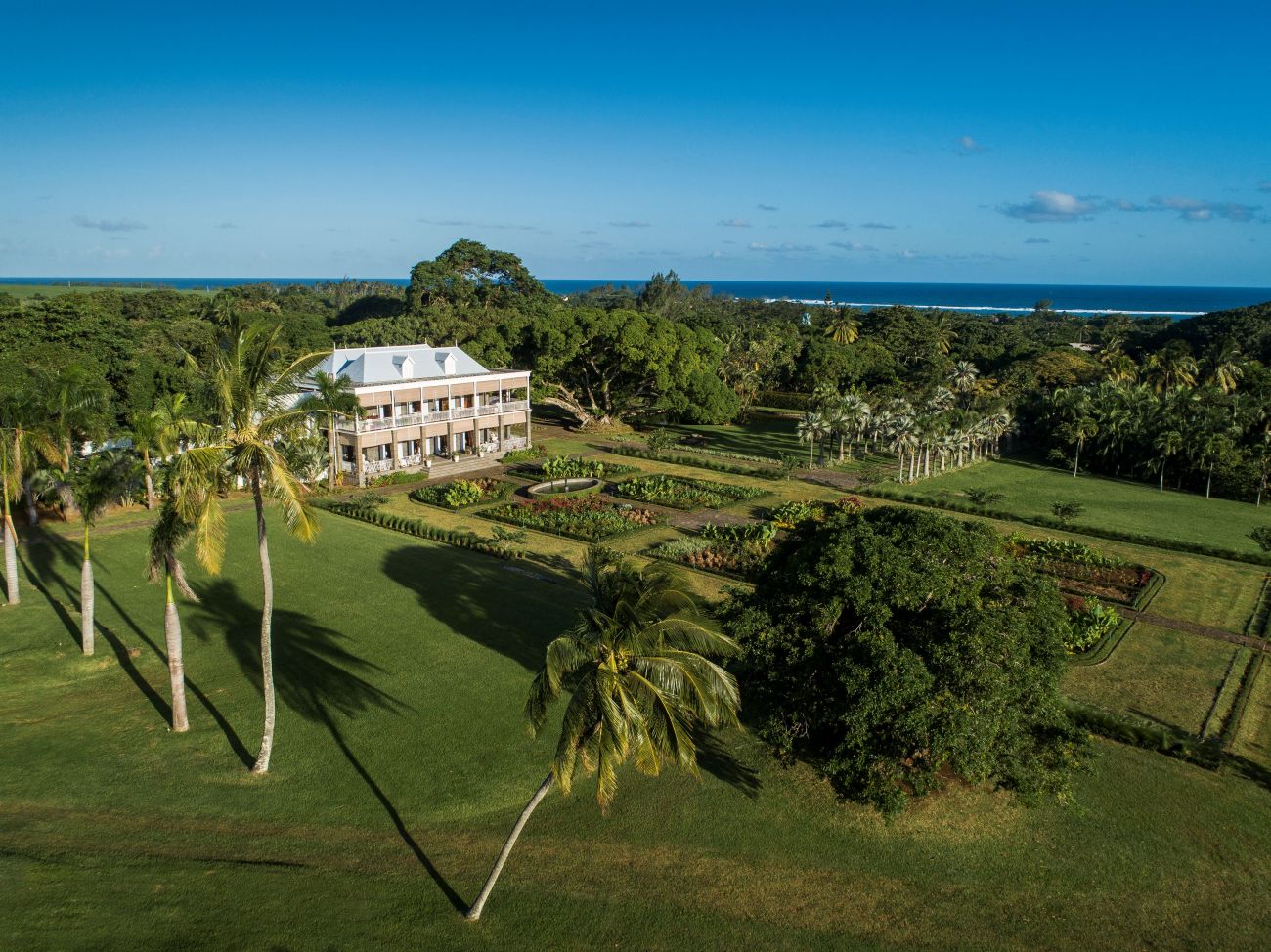 Heritage Resorts - Le Château de Bel Ombre
Photo credit © Rogers Hospitality
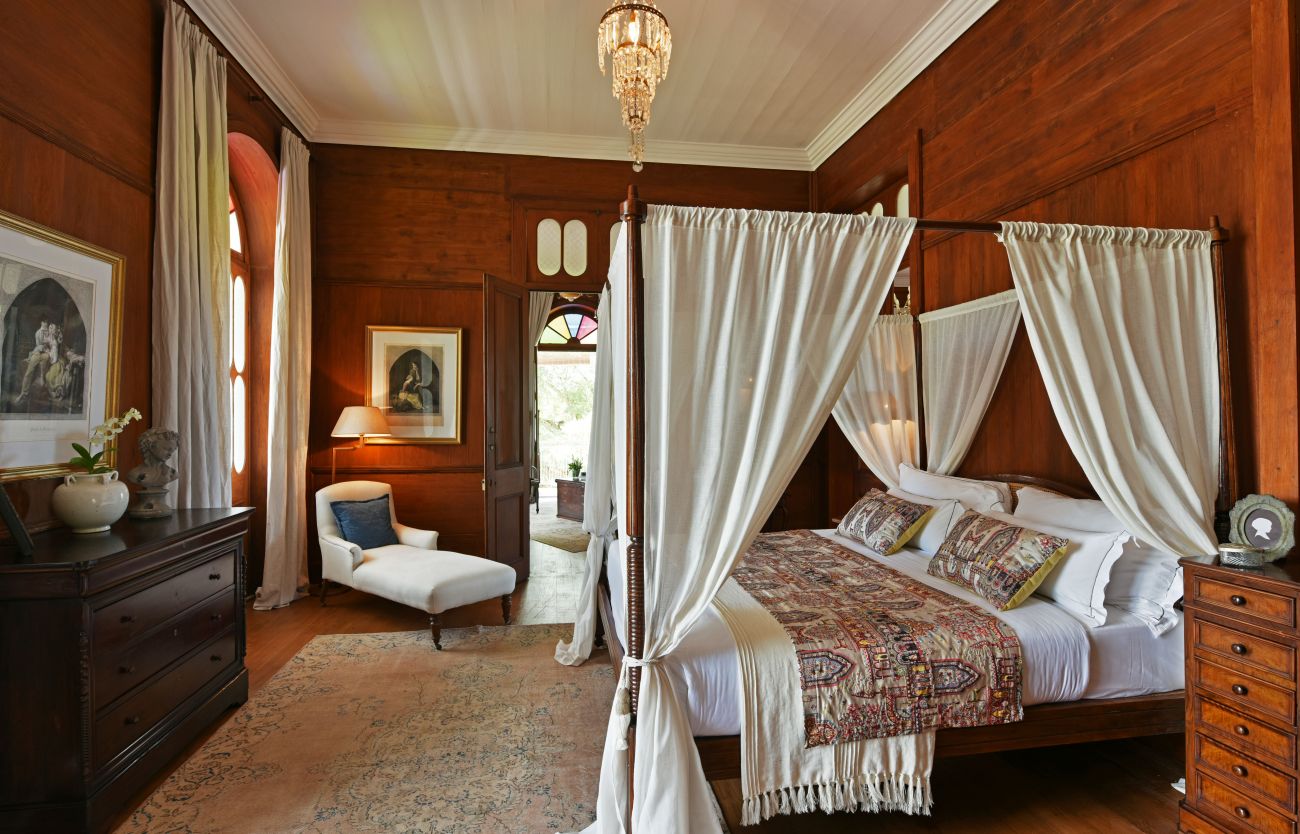 Suite at Château de Bel Ombre
Photo credit © Rogers Hospitality
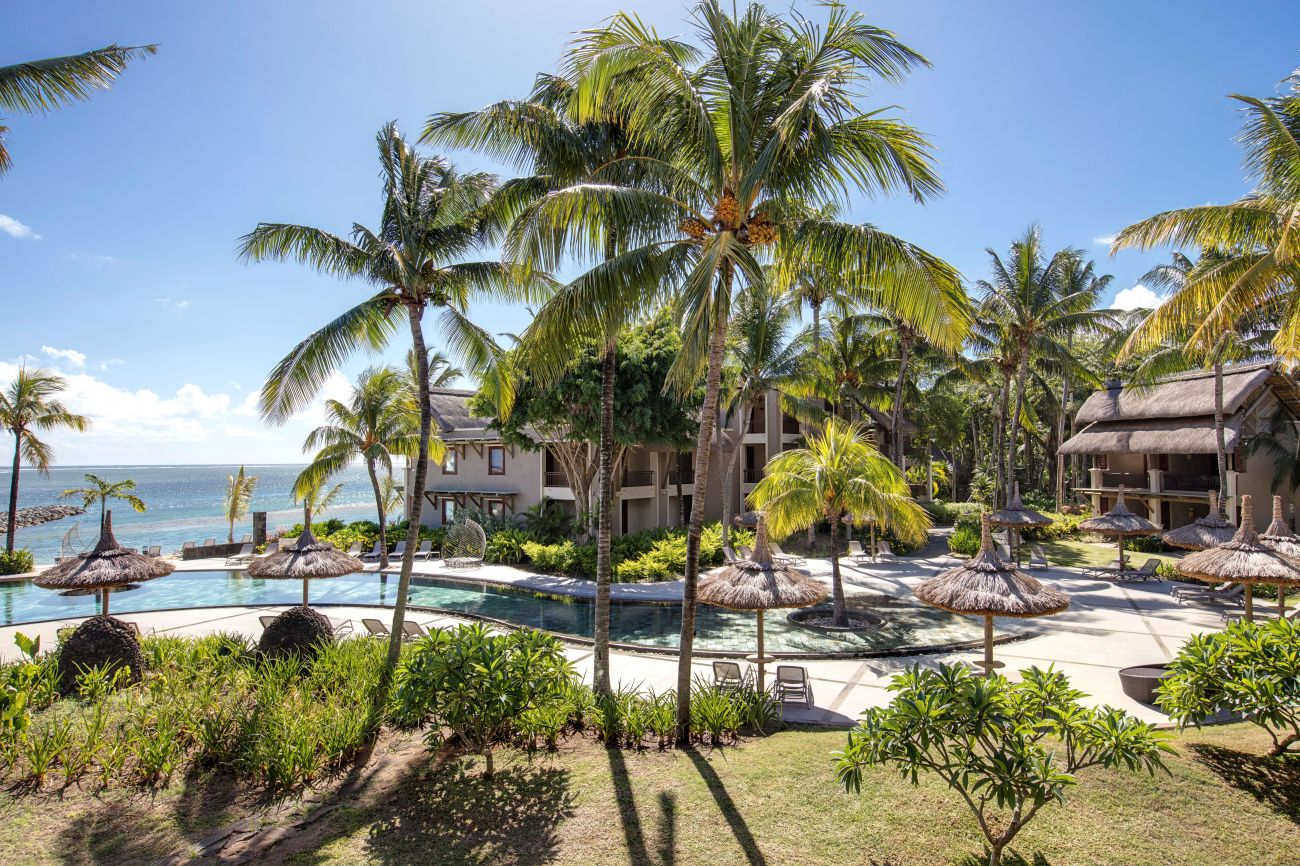 Heritage Awali Golf, Resort & Spa
Photo credit © Rogers Hospitality
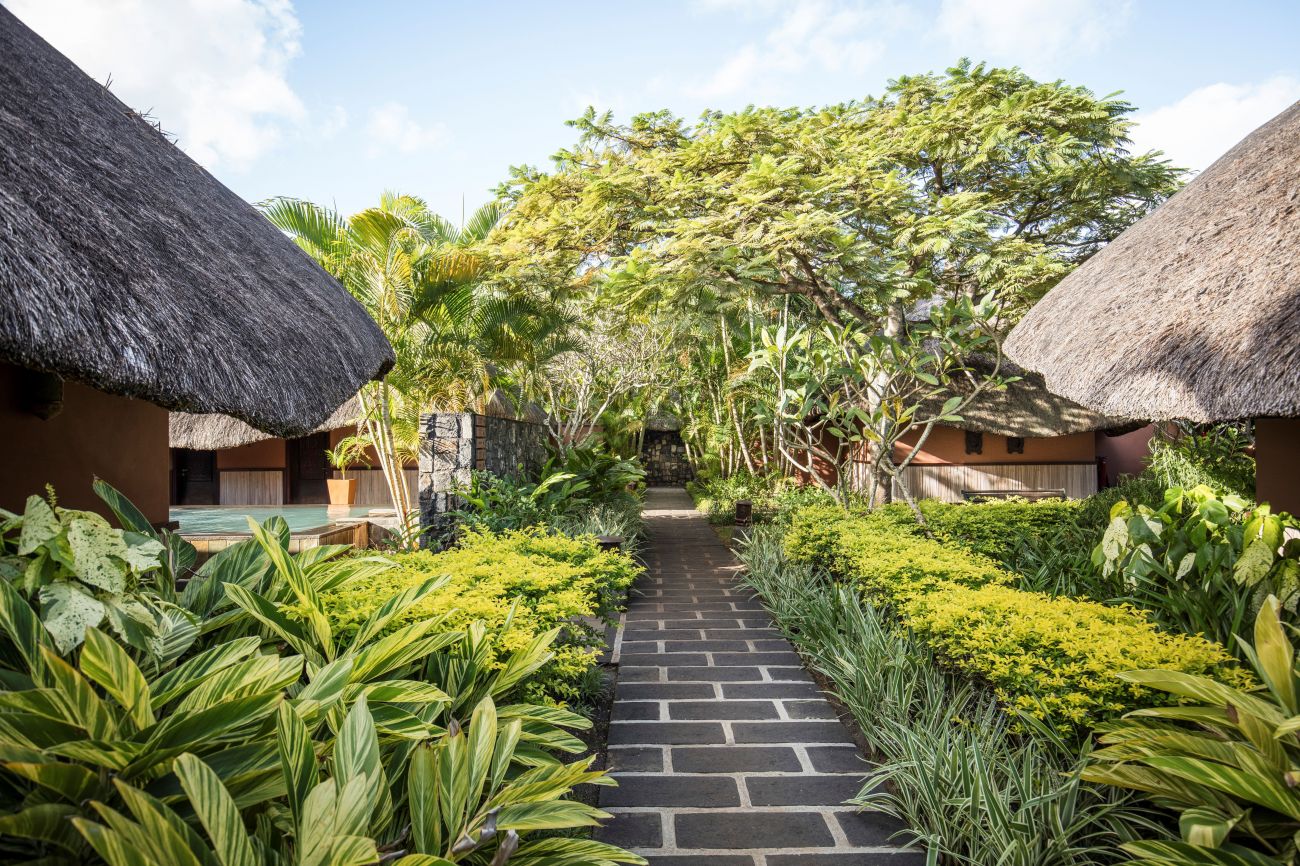 Heritage Awali Golf, Resort & Spa
Photo credit © Rogers Hospitality
|
|





